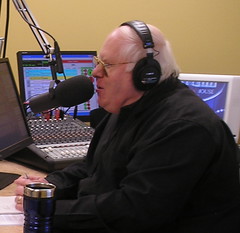Saturday, May 05, 2007
Hate is an emotion, not a crime
Although it pains me to be on the same side as James Dobson on anything, I am afraid I would have had to join the “no” voters, but for far different reasons than most, I am sure. How are we to know exactly why some criminal made a terrible decision? Hate laws presume to allow government to look inside the human conscience and that is dangerous.
Under this legislation, all the freedom riders would have been subject to prosecution for being against the white ruling majority. The bill makes one group of victims more important and valuable than another. That, coincidentally, is the problem with the so-called victims rights movement. It creates a kind of “group think” that decreases the worth of individuals, especially unpleasant people.
It’s easy to just say “no” to all kinds of hate laws, and any action that harms another person for any reason.
(Broadcast May 4, 2007)
I am disappointed in your unenlightened and rather regressive view of Hate Crime Legislation. But then I took into account you either have not studied this subject or you have not had it explained to you.
A Hate Crime is defined under this bill as a crime of aggravated assault, arson, burglary, criminal homicide, motor vehicle theft, robbery, sex offenses, and/or crime involving bodily injury in which the victim was intentionally selected because of the victims' actual or perceived race, gender, religion, sexual orientation, ethnicity, or disability.
Yes, it is a crime to commit any assault or murder. But just as an accused is able to use the defense of extenuating circumstances to receive a less severe punishment, there must be hate crime laws that require greater punishment when the main reason for the crime is hatred toward a certain group. Only then will a punishment not only fit the thought behind a crime, but also the crime itself.
The rationale for hate crime laws is recognition that the existing laws clearly are not deterring high incidences of crime against specific target groups. That is one of the desired effects of laws is to deter and to define the consequences for breaking that law. When certain people are targeted and are victimized at a much higher incidence than the population as a whole, it is only moral for the law to recogize the problem. This does not define or create a "special right". It addresses a specific, pre-existing problem in our society. This would all be easier to understand if you were already a member of a class with a much greater likelihood of being attacked or murdered. But as it is, Pat, you are not if you look at the statistics.
Maybe this will help you understand and maybe not. But at least I have done my part to educate you. These are laws that hopefully protect me a little more. If you want, I am welcome to come on the show sometime, and talk about the biases that exist in our legal system. There is more than racial profiling but also sexual orientation bias and I have experienced it.
If anything else think of what Kafka said about not speaking out because it didn't affect him directly.
Sincerely,
Drew Pritt
<< Home

